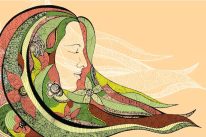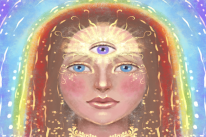
“In the depth of winter, I finally learned that there was in me an invincible summer.” ~Albert Camus
Life has a way of throwing us curve balls when we least expect them.
For years, I had been managing the usual ups and downs of life when I was blindsided by a diagnosis that would forever change the way I lived: psoriatic arthritis. It’s one of those illnesses that most people don’t quite understand because it doesn’t always show on the outside. I looked fine, but inside, my body felt like it was on fire. The pain was constant, an unwelcome guest that wouldn’t leave, and it was compounded by the invisibility of it all.
I’d wake up each morning, bracing myself for the pain that would greet me like a familiar adversary. Simple tasks like getting out of bed or opening a jar became monumental feats. My energy levels were erratic; some days I could barely make it through the afternoon without needing to lie down. It was as if my body had declared war against itself, and I was caught in the crossfire.
The Burden of Silence
One of the hardest parts about living with an invisible illness is the isolation that comes with it. People around you can’t see what you’re going through. They see you smiling, trying to maintain a semblance of normalcy, and they assume you’re okay. But inside, there’s a storm raging.
I didn’t want to be seen as weak or as someone who complained all the time, so I put on a brave face. I pushed through the pain, ignored my body’s pleas for rest, and pretended everything was fine.
But the truth was, I was struggling. I felt like I was on a sinking ship, frantically trying to bail out the water with a teacup. The pain and fatigue were unrelenting, and the emotional toll was even greater. I found myself withdrawing from social activities, avoiding conversations, and slowly shrinking into myself. The vibrant, energetic person I once was seemed like a distant memory.
The Turning Point: Embracing Vulnerability
One day, I reached a breaking point. The pain was so intense that it felt like my entire body was on fire, and I could no longer keep up the facade of strength. I realized I couldn’t do it alone anymore. I needed help. So, I decided to open up to my family and friends about what I was going through. It was one of the hardest things I’ve ever done—admitting that I was struggling and needed support.
To my surprise, my vulnerability was met with compassion and understanding. Sharing my pain didn’t make me weaker; it made me stronger. It allowed me to let go of the burden I’d been carrying and made room for love and support to enter my life. My loved ones rallied around me, offering help in practical ways—whether it was preparing meals, helping with chores, or just being there to listen when I needed to vent.
Finding a New Normal
With the support of those around me, I began to navigate my new reality. I learned to listen to my body and honor its needs. I started meditating and practicing mindfulness, which helped me find a sense of peace even amidst the chaos.
I realized that while I couldn’t control my illness, I could control how I responded to it. I shifted my focus from what I had lost to what I still had—a loving family, the ability to write, and a deep desire to help others.
I also began exploring alternative therapies. Meditation became a daily practice, allowing me to find a quiet place within myself, free from pain. On days when the pain was unbearable, I would meditate, focusing on my breath, letting go of the tension in my body, and visualizing myself surrounded by healing light. This practice didn’t take the pain away, but it gave me the strength to endure it.
Lessons Learned: Finding Light in the Darkness
1. Embrace vulnerability.
Opening up about my struggles was a turning point for me. It’s okay to ask for help. Being vulnerable doesn’t make you weak; it makes you human. Allowing others to see your pain can create deep and meaningful connections.
2. Listen to your body.
For years, I ignored my body’s cries for help, pushing through the pain and fatigue. I’ve since learned the importance of listening to my body and honoring its needs. Rest when you need to. Take breaks. It’s not about being lazy; it’s about being kind to yourself.
3. Find your anchor.
Life with a chronic illness is unpredictable. Having something to hold on to—whether it’s a hobby, a spiritual practice, or a passion—can provide a sense of stability. Writing has always been my anchor, my way of processing the world around me. Finding something that brings you joy and peace can be a lifeline during difficult times.
4. Focus on what you can control.
Living with an invisible illness can make you feel powerless. I’ve learned to focus on the things I can control—my attitude, my response to pain, and how I treat myself. By focusing on what I can control, I’ve found a sense of empowerment.
5. Be kind to yourself.
Living with a chronic illness is hard. There will be days when you feel like you can’t go on. On those days, remember to be kind to yourself. Treat yourself with the same compassion you would offer to a friend. You are doing the best you can, and that’s enough.
Moving Forward with Grace and Resilience
Living with psoriatic arthritis has taught me more about myself than I ever thought possible. It’s taught me resilience, patience, and the power of vulnerability. It’s shown me that I am stronger than I ever knew. While the pain is still there, I’ve found a way to coexist with it, to find moments of joy and peace amidst the struggle.
To anyone reading this who is battling their own invisible illness, know that you are not alone. There is light in the darkness, even if it’s hard to see sometimes. Hold on to hope. Reach out for support. And remember, you are stronger than you think.
About Shurbelle John Baptiste
Shurbelle John Baptiste promotes a holistic approach to well-being that incorporates physical health, emotional resilience, and spiritual depth. She provides readers with practical tools and insights that can help them lead more fulfilling, mindful lives. Shurbelle holds a business degree despite the challenges of learning in cookie-cutter environments while having autism. She has extensive experience in writing, teaching, and creating digital content that supports personal growth and spiritual development. Learn more at Belle of the Light Books.













 Though I run this site, it is not mine. It's ours. It's not about me. It's about us. Your stories and your wisdom are just as meaningful as mine.
Though I run this site, it is not mine. It's ours. It's not about me. It's about us. Your stories and your wisdom are just as meaningful as mine.